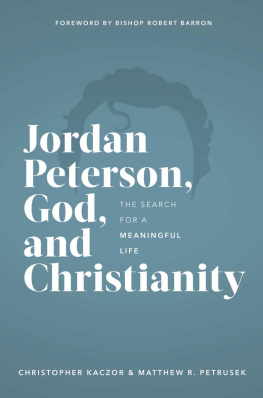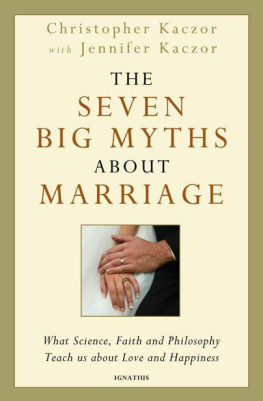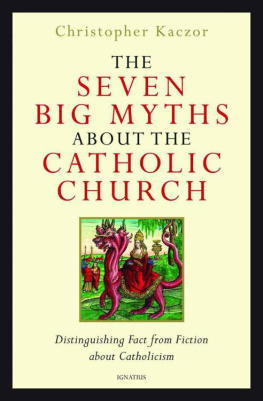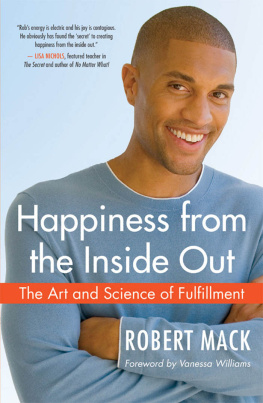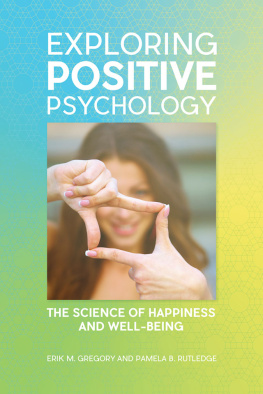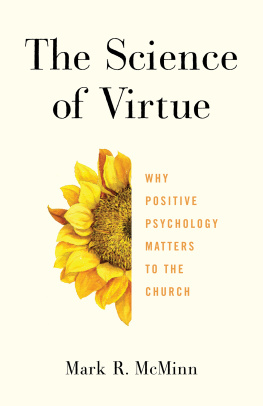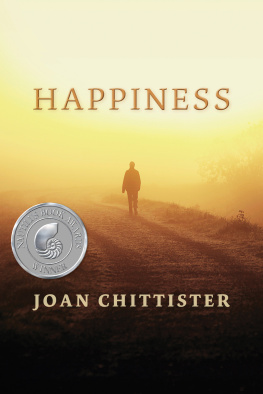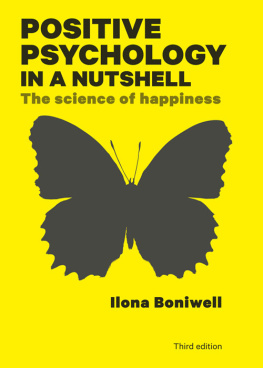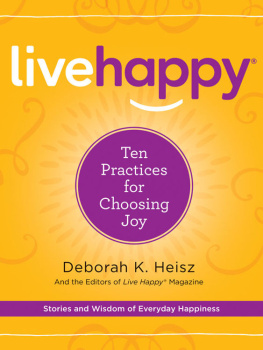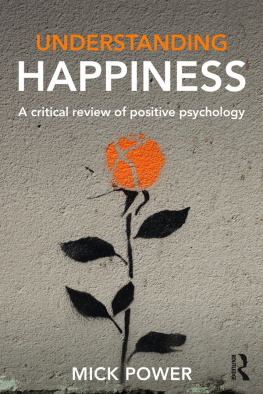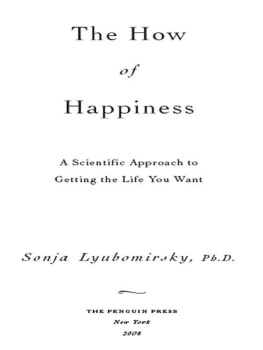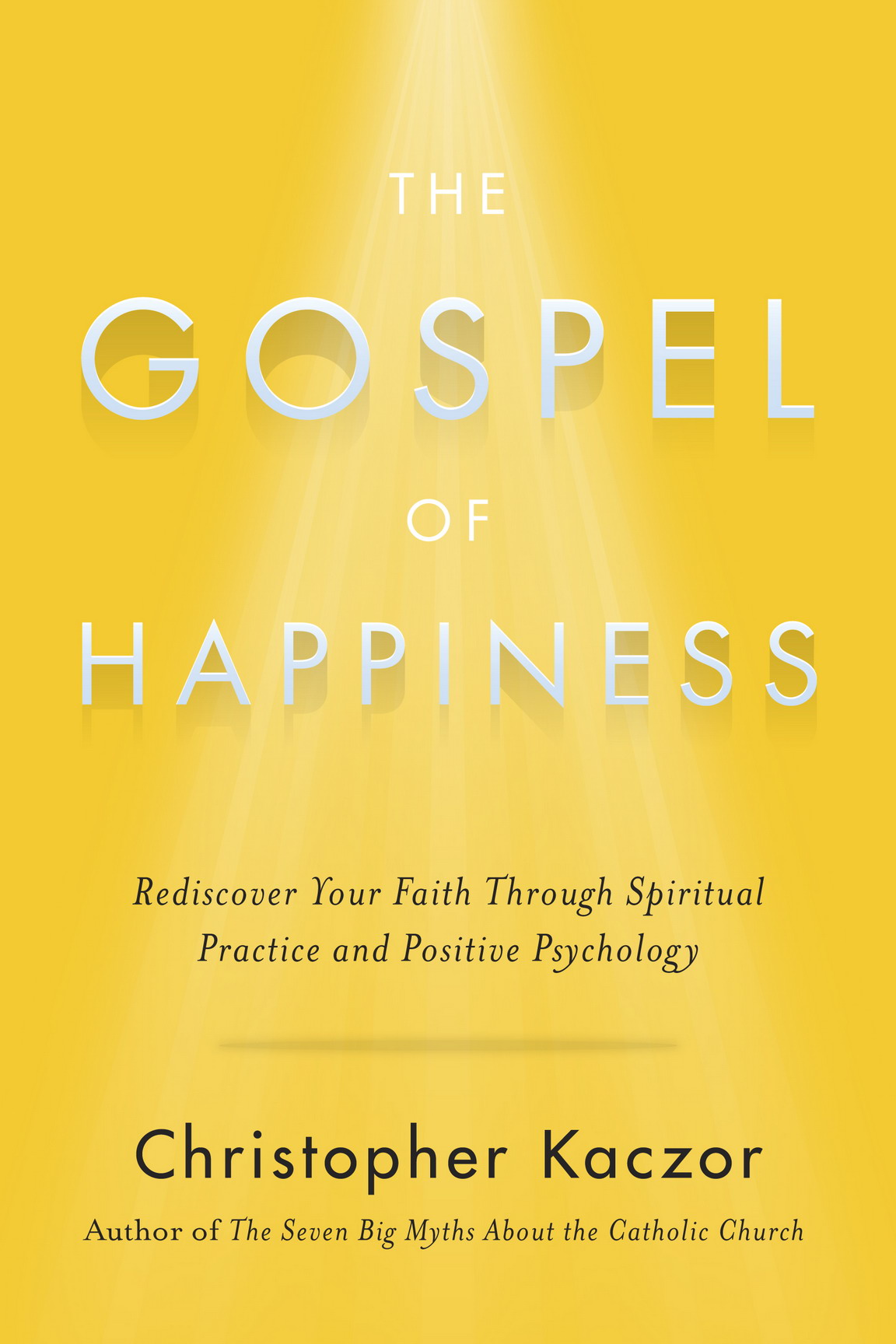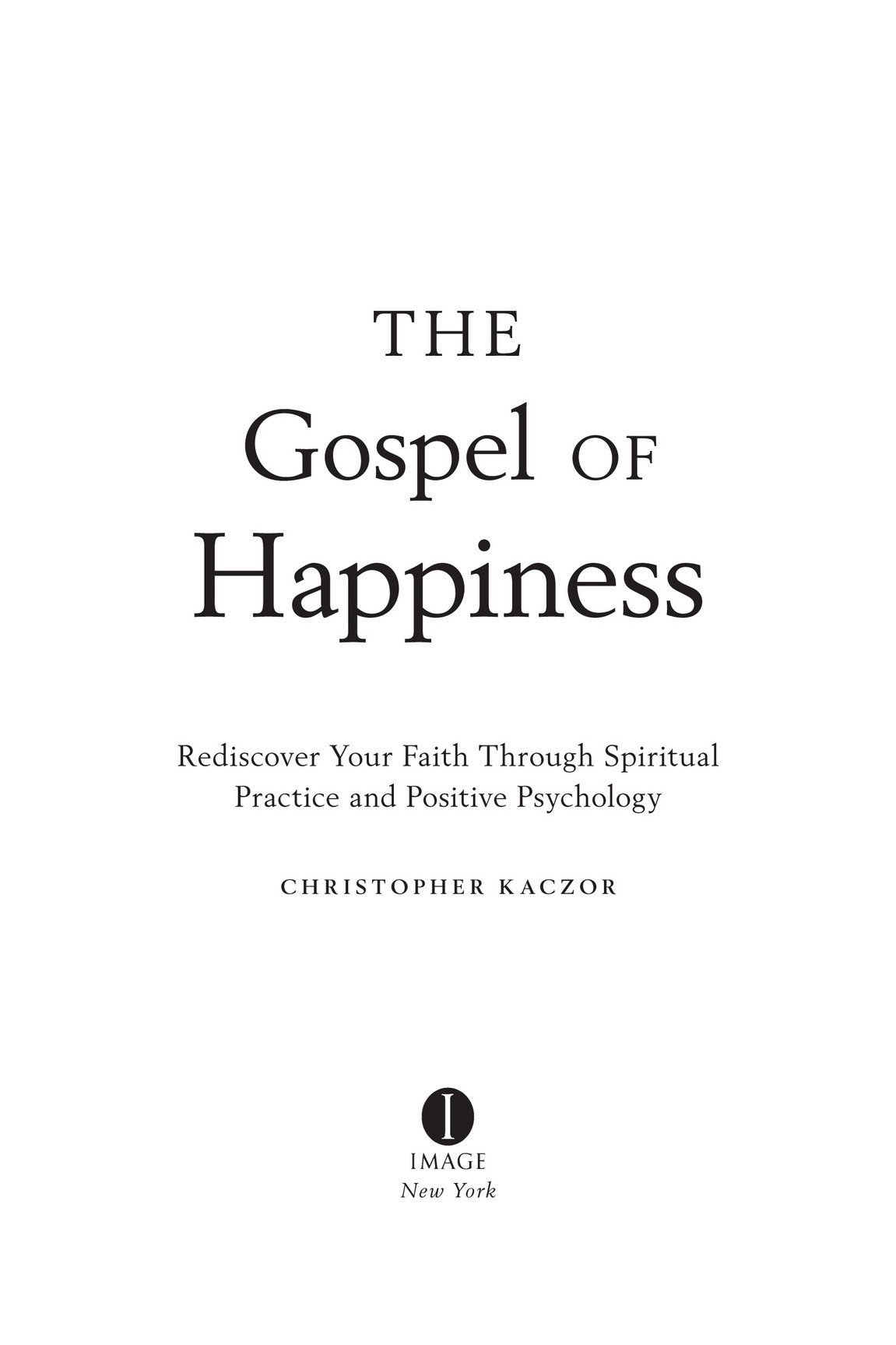Contents
ALSO BY CHRISTOPHER KACZOR
The Seven Big Myths about the Catholic Church
How to Stay Catholic in College
The Seven Big Myths about Marriage
Life Issues, Medical Choices
O Rare Ralph McInerny: Stories and Reflections on a Legendary Notre Dame Professor
Thomas Aquinas on Faith, Hope, and Love
Thomas Aquinas on the Cardinal Virtues
Copyright 2015 by Christopher Kaczor
All rights reserved.
Published in the United States by Image, an imprint of the Crown Publishing Group, a division of Penguin Random House LLC, New York.
www.crownpublishing.com
IMAGE is a registered trademark and the I colophon is a trademark of Penguin Random House LLC.
Grateful acknowledgment is made to Avery, an imprint of Penguin Publishing Group for permission to reprint scattered excerpts from The Willpower Instinct: How Self-Control Works, Why It Matters, and What You Can Do to Get More of It by Kelly McGonigal, copyright 2012 by Kelly McGonigal, PhD. Used by permission of Avery, an imprint of Penguin Publishing Group, a division of Penguin Random House LLC.
Library of Congress Cataloging-in-Publication Data is available upon request.
ISBN9780804141000
eBook ISBN9780804141017
Cover design by FORT
v4.1
a
For Kevin, amicus amico
Jesus prayed, saying: Holy Father,I speak this in the world so that they may share my joy completely.
John 17:1, 13
All people seek happiness. This is without exception. Whatever different means they employ, they all tend to this end. The cause of some going to war, and of others avoiding it, is the same desire in both, attended with different views. The will never takes the least step but to this object. This is the motive of every action of every person, even of those who hang themselves.
Blaise Pascal, Penses, 425
| CONTENTS |
| ACKNOWLEDGMENTS |
I am deeply indebted to numerous people who helped this project immeasurably. Id like to mention in particular Gregg Ten Elshof, Thomas Crisp, and Steve Porter, the directors of Biola Universitys Center for Christian Thought. This publication benefited from a research fellowship at Biola Universitys Center for Christian Thought, which was made possible through the support of a grant from the John Templeton Foundation. The opinions expressed in this publication are those of the author and do not necessarily reflect the views of the John Templeton Foundation or Biolas Center for Christian Thought. I am also indebted to Todd W. Hall, Peter C. Hill, Eric L. Johnson, Jonathan Lunde, Alan G. Padgett, Judy Ten Elshof, Dan Crowley, Betsy A. Barber, John H. Coe, C. Stephen Evans, David A. Horner, Kelly M. Kapic, Greg Peters, William Struthers, James Wilhoit, Ken Tang-Quan, and Todd Pickett, who participated in our weekly roundtable meetings.
Id also especially like to thank Dave Strobolakos, Mariele Courtis, and Nicole Garcia for helping me as research assistants on this and other projects. I am also deeply grateful to Aaron Kheriaty, Miles Kessler, David R. Oakley, Esq., Heidi Giebel, and Kaye Cook for reading and commenting on the manuscript. My wife, Jennifer, kindly provided a first draft of several paragraphs. I am especially indebted to Gary Jansen, the editor at Image Books at Penguin Random House. He nourished this project from its initial stages to its completion by his kindness, support, and critical eye for improvement.
Finally, I would like to acknowledge that the completion of this project took place during my appointment as William E. Simon Visiting Fellow in Religion and Public Life in the James Madison Program at Princeton University. I am grateful to Robert P. George, director of the James Madison Program, and Brad Wilson, the executive director, for being such wonderful hosts.
Christopher Kaczor
Princeton University
| INTRODUCTION |
What is real happiness? How can I experience it? How can I live it? Every thoughtful person asks such questions. Thoughtful Christians add a few more questions, such as: How can I enhance Christian living? Is there any proof that Christian practices enhance happiness? Does Christianity provide happiness in a way that other paths, like psychology, cannot?
These questions are worth exploring, but I never expected to write a book like this looking at happiness from a theological and psychological perspective. My only personal experience in psychological counseling had not been positive. As a graduate student studying philosophy and theology at the University of Notre Dame, I was under tremendous academic and financial pressure. I wanted to be a philosophy professor, but I wasnt sure if I had what it took to make it. My wife and I were struggling to support our young family of three children on my graduate stipend of $10,000 a year. Financial pressure, family struggles, and the intensity of my academic work took a toll. A friend suggested I seek psychological counseling, so I did. After the second session, the psychologist said to me, You know, Chris, there are two kinds of people for whom psychological counseling is completely worthless. One group is hard-core drug addicts. The other group is philosophers. Needless to say, there was no third session.
So, although my initial experience with a psychologist had not proved helpful, in reading about the philosophy and theology of happiness, my scholarly work on the subject of happiness eventually led me to something called positive psychology, which opened my eyes anew.
When Martin Seligman of the University of Pennsylvania was elected president of the American Psychological Association in 1998, he chose positive psychology as his theme, launching a new movement within the field. Traditionally, psychology has focused on peoples problems such as depression, anxiety, and bipolar disorder. Seligman challenged psychologists to find empirical answers for new questions, such as: What makes people happier? How can people become more resilient? What are peoples signature strengths?
Seligmans recasting of psychology opened up a flourishing new field that focused on optimism rather than helplessness, signature strengths rather than pathology, and growth in happiness rather than depression. Tal Ben-Shahar, author of Happier: Learn the Secrets to Daily Joy and Lasting Fulfillment, began teaching about positive psychology, and his class became Harvards most popular undergraduate course. The University of Pennsylvania and Claremont Graduate University now offer advanced degrees in positive psychology. This new field also generated bestselling books such as The How of Happiness: A Scientific Approach to Getting the Life You Want, by Sonja Lyubomirsky, professor of psychology at the University of California, Riverside. Unlike Norman Vincent Peale and his idea of the power of positive thinking, researchers in positive psychology stress that their approach is empirical and scientific. Like new medications, the various strategies for increasing happiness are tested via double-blind, replicated studies that make use of control groups.
What I learned from positive psychology was astonishing. First, although some people believe that faith and psychology contradict each other, researchers in positive psychology found that traditional Christian practices such as giving thanks, forgiving others, and serving your neighbor promoted human happiness and well-being. I learned that I did not need to choose between Christian faith and positive psychology, any more than I had to choose between Christian faith and modern medicine. Christian believers can embrace the findings of positive psychology, even if its source is secular science. As St. Augustine wrote in


